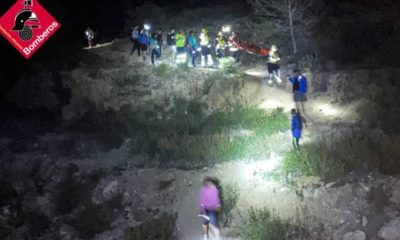Costa Blanca
The work of ONCE guide dogs is explained to the people of Benidorm

The public was shown how these animals are utilised to become essential components of blind people’s safety and autonomy during an exhibition hosted by the ONCE Guide Dog Foundation (FOPG) in Benidorm yesterday, Thursday 27th March.
Under the theme “Much more than a dog,” the nearly 1,000 participants, who came from various Benidorm educational institutions and the general public, watched as these animals performed a variety of obedience and focus exercises alongside mobility instructors Rafael Almansa and Eloy Aranda. They were accompanied by Tibor, a black Labrador, and Dior, a sable-coloured German Shepherd.
Guide dog users from Alicante, María Luz Menéndez and Moisés Moreno, described their everyday lives with ORI and ODRI, respectively, and both demonstrated on a circuit how the training process works so that the dogs can overcome obstacles, go up or down stairs, cross zebra crossings, look for doors, or stay in a cafe or in any kind of transportation at the feet of a blind person.
Antonio Pérez, the mayor of Benidorm and president of the Alicante Provincial Council; Enrique Llin, the president of the ONCE Territorial Council in the Valencian Community; Estela Medina, the director of ONCE in Alicante; and Francisco José Muñoz, the councillor for Public Space, Public Works, Accessibility, and Mobility of Benidorm, who wore an eye mask and experienced firsthand what it’s like to move without seeing, along with an ONCE guide dog.
The proper way to act around a guide dog
In addition to reviewing some guidelines for how to act around a guide dog, attendees had the chance to learn about the various phases a dog goes through to become the eyes of a blind person, including rearing, socialisation, training, everyday life, and retirement.
The first of them is that dogs should not be given any food since they may have a food intolerance, which could lead to digestive issues that could impair their health and well-being and interfere with their ability to help the blind person they are with on a regular basis.
They also reminded everyone that when walking with a blind person, which they are happy to do, it is crucial to avoid diverting the dog’s attention. This demands their focus to keep them safe.
Another piece of public advice is that people who own companion dogs should always keep them under control by their side and not let them go if a guiding dog is around.
Though it’s crucial to respect their work when guiding and save play and greetings for when they’re not wearing a harness, guide dogs also enjoy lots of downtime and leisure time.
Additionally, keep in mind that you should never tug on the dog’s leash or harness when giving instructions to a blind person. Just move away from the dog and approach them, ideally from their right side.
The legal right of guide dog owners to enter any locations, spaces, businesses, and public transportation in Spain with their dog was also recalled; this is a fact that occasionally creates issues because of public ignorance.
Over 3,700 canines have been given by the ONCE Guide Dog Foundation in its nearly 35-year history, and almost 1,000 of those dogs are currently strolling through our nation’s streets and villages with an equal number of blind people. Thirty of the 84 guide dogs in the Valencian Community—the eyes of the blind and visually impaired—live in Alicante. Every year, about 140 animals are supplied.
Strolling Together
The integration of blind persons into society is one of ONCE’s top concerns. This work is founded on three pillars: employment, social and cultural interactions, and personal autonomy.
In order to address this, she established the ONCE Guide Dog Foundation (FOPG), following the lead of North American and European guide dog schools. Its current facilities, which are located in Boadilla del Monte (Madrid), provide all services, including canine training and instruction, boarding, breeding, and puppy care, as well as a veterinary clinic, a shelter for retired dogs, and a training user housing.
The most popular breeds are German Shepherds and Labrador Retrievers, which are hypoallergenic crosses between Golden Retrievers and Giant Poodles. Like all of the services that ONCE provides to its users, this one is free. Depending on the animal’s developmental stage, training lasts 18 to 20 months before the animal is delivered to the user. In addition to dog trainers and teachers, foster families offer to socialise the puppies during the training process.
Discover more from Costa Blanca Daily
Subscribe to get the latest posts sent to your email.
Costa Blanca
Man who held and beat his ex-partner in Torrevieja to be tried on Thursday
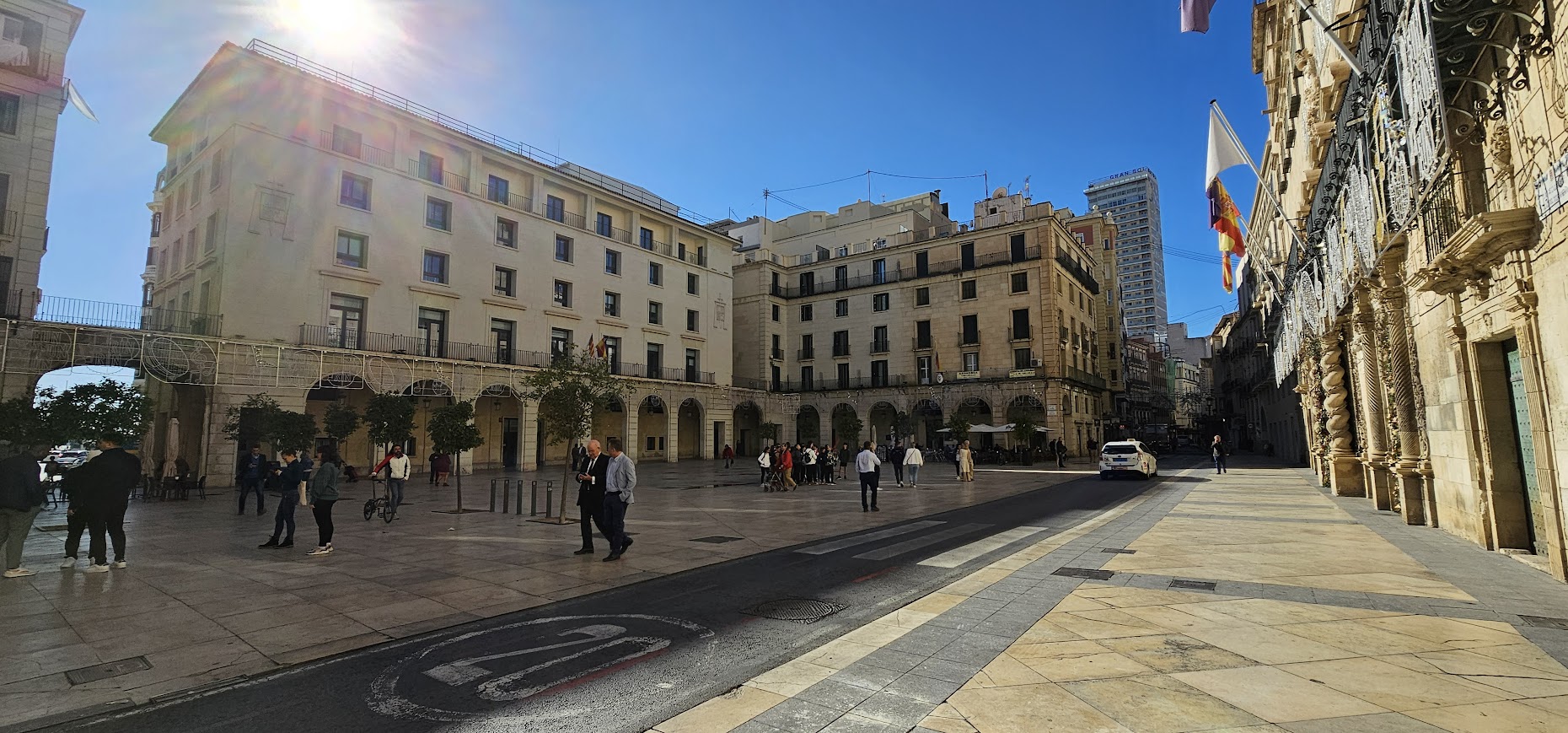
The man who is accused of restraining his ex-partner in a Torrevieja residence for hours and striking her on the head and stomach will be put on trial on Thursday.
At approximately 11:00 p.m. on November 1st, 2023, the incident happened. After a two-year relationship, the defendant accosted his ex-partner on the street. He secured a cloth sack over her head, covered her mouth, and coerced her into a vehicle operated by an unidentified individual. The vehicle was to transport her to a residence in a nearby housing development.
Upon his arrival, he confined her to one of the house’s rooms and spent the night repeatedly entering and exiting the room in an attempt to physically assault her. The woman was able to escape from the residence at 2:00 p.m. the following day.
The Prosecutor’s Office is requesting an eight-year prison sentence for the offences of unlawful detention, assault, and threats. The trial is scheduled to commence at 9:30 a.m. in Section 1 of the Alicante Provincial Court on Thursday, May 8th.
Discover more from Costa Blanca Daily
Subscribe to get the latest posts sent to your email.
Costa Blanca
Three-year-old boy injured after being attacked by a dog in Orihuela
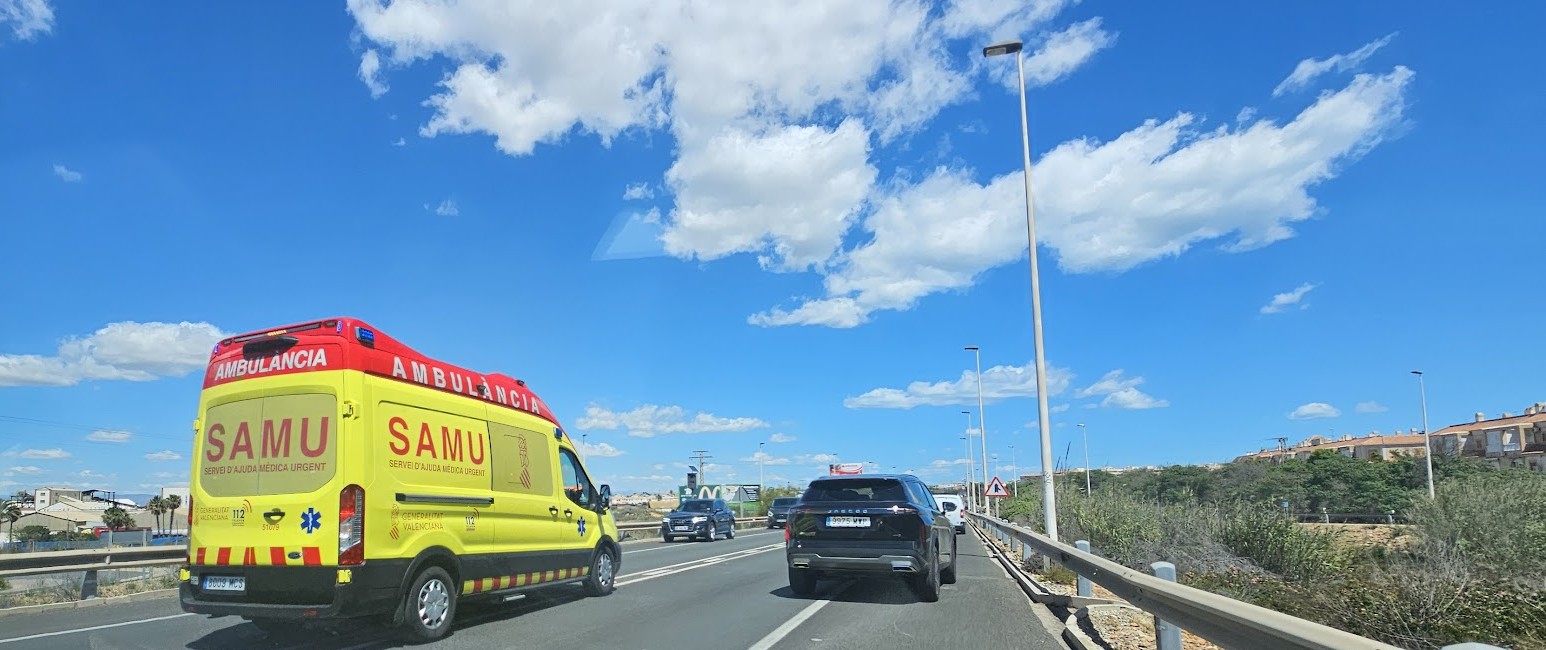
In the Orihuela district of La Murada, a three-year-old child sustained multiple facial and back injuries as a result of a dog attack.
The incident occurred at the intersection of Calle Antonio Balaguer and Camino de los Almendros slightly after 2 p.m. on Saturday, May 3rd.
The child and his mother had gone to their neighbour’s house across the street to eat and spend the afternoon when the dog emerged from the garage and “hooked” the child, according to witnesses.
The family members’ prompt action in separating the large, mixed-breed dog prevented “a tragedy,” as per the same sources.
It appears that the neighbours have encountered comparable hazardous circumstances in the past; however, they have not culminated in an attack, as they have in this instance, despite the numerous warnings they have issued to the proprietor.
The site was attended to by the local police and Guardia Civil. The SAMU (Safety and Emergency Medical Service) was dispatched by the Emergency Information and Coordination Centre, which received the call at 2:38 p.m. A Basic Life Support unit was mobilised and conveyed the child to the Orihuela health centre upon the medical team’s arrival, as the child appeared to have sustained some scratches.
Discover more from Costa Blanca Daily
Subscribe to get the latest posts sent to your email.
Costa Blanca
Tourist rentals are prohibited in all residential communities

Until recently, any owner was able to convert their property into a tourist flat by obtaining the corresponding regional or local tourist licence. However, this has been altered: Since April 3rd, 2025, tourist rentals are automatically prohibited in all residential communities. Only a specific agreement at a meeting can authorise it.
This is a significant reform of the Horizontal Property Law, as it now grants residents’ associations legal control over this activity. The new Article 17.12, which has entirely altered the previous legal framework regarding tourist apartments, is the critical factor.
What is the new legislation regarding visitor apartments?
The following is established by the new Article 17.12 of the Horizontal Property Law:
“The express agreement that authorises, restricts, conditions, or prohibits the activity (…) will necessitate the affirmative vote of three-fifths of the total number of owners, who, in turn, represent three-fifths of the participation quotas.”
Therefore, without the community’s prior consent, no proprietor will be able to rent out their property for tourist purposes. Only the explicit consent of a qualified majority can lift the comprehensive prohibition.
The primary modification is that the agreement no longer prohibits it, but now permits it.
Tourist rentals were permissible prior to April 3rd, 2025, unless the community agreed to prohibit them at a meeting.
Tourist rentals are prohibited as of April 3, 2025, unless the community explicitly authorises them with the affirmative vote of three-fifths of the total number of proprietors and members. In other words, the burden of proof is reversed: authorisation is now necessary rather than prohibition.
What if there are already tourist rentals in flats?
The reform does not have a retroactive effect. This implies that proprietors who were already legitimately conducting their enterprises prior to April 3, 2025, and who were registered under tourism regulations, are permitted to continue doing so. This clause is specified in the second supplementary provision of the law.
Nevertheless, the community may also consent to a surcharge of up to 20% on common expenditures for those homes, as a form of compensation for the increased use of common areas, with a 3/5 majority.
What is the function of the bylaws of a neighbourhood community?
The constitutive document or the community statutes are indispensable. This prohibition is fully enforceable and remains in place if they already contain a clause that expressly prohibits tourist use or any commercial activity, as confirmed by the Supreme Court in rulings of 2023 and 2024.
The community can also stop the activity immediately if the statutes change the usage regime, even without new ballots.
What happens if a landowner disregards the regulations and rents out their property without authorisation?
In that event, the community is entitled to request that the activity be ceased. The president, any proprietor, or even an affected occupant may initiate the procedure. If the offender persists, the community may pursue legal action.
Is there any additional requirement for renting a property for tourist purposes, in addition to community approval?
The owner is still required to acquire the appropriate tourist licence in accordance with regional or municipal regulations, although the community has authorised the activity. This administrative permit is essential, but it is insufficient to initiate the activity; community authorisation is required.
Discover more from Costa Blanca Daily
Subscribe to get the latest posts sent to your email.
-

 Costa Blanca2 weeks ago
Costa Blanca2 weeks agoCatral Local Police car ends up upside down after accident
-
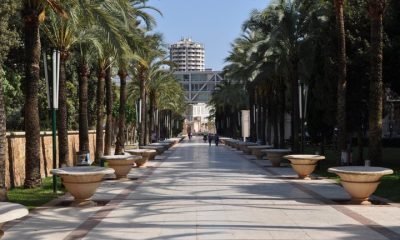
 Costa Blanca1 week ago
Costa Blanca1 week agoBenidorm studies the temperature of its streets to understand “heat island effect”
-

 News2 weeks ago
News2 weeks agoThe Generalitat presents the road map for the widening of the CV-95 between Orihuela and Torrevieja
-

 Costa Blanca2 weeks ago
Costa Blanca2 weeks ago44% of homes in Alicante province were purchased by foreigners
-

 Costa Blanca1 week ago
Costa Blanca1 week ago‘Cartagena’, the new electric Navy ship
-

 Costa Blanca1 week ago
Costa Blanca1 week agoFour minors arrested for smuggling drugs on a school trip
-

 Costa Blanca1 week ago
Costa Blanca1 week agoAlicante port gets an electric boat for cleaning the water surface
-
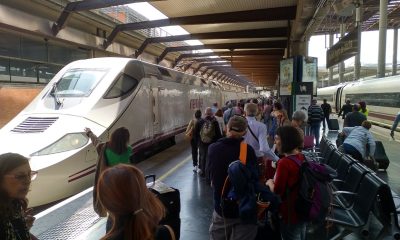
 Costa Blanca1 week ago
Costa Blanca1 week agoCompetition on Spain’s railways is driving down prices









